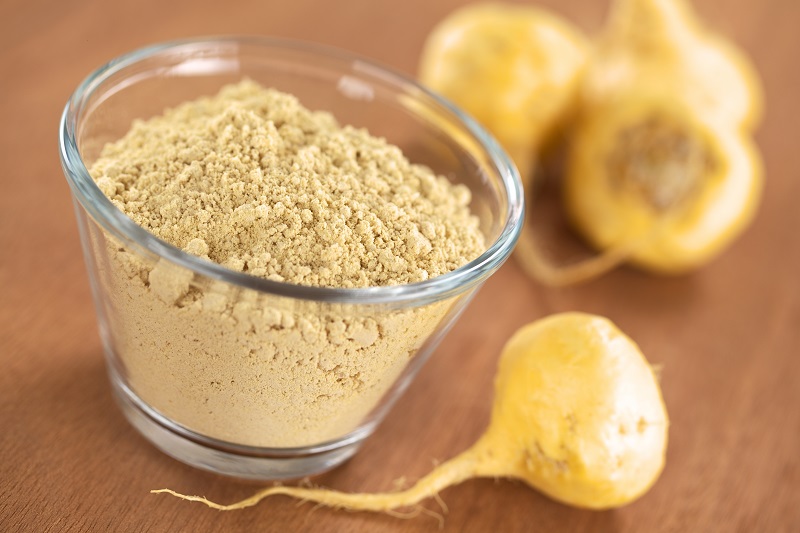Introduction
A very important aspect of the natural products industry is the focus on preventive rather than reactive medicine and treatment. American society tends to be very reactive in the way that it approaches problems, which means that the strategy for problem solving often comes from a place of reacting to an issue that is already present rather than taking steps to prevent the issue in the first place. Often, much time is spent on solving a crisis or researching the solution to a problem that could have been prevented in a much simpler way. This is especially relevant when looking at health statistics in the United States. According to the Center for Disease Control, the leading cause of death in the United States is heart disease, which is a 100% preventable disease (2016). Countless amounts of money and research hours go into developing treatments for obesity such as Gastric Bypass Surgery rather than promoting good health at a younger age by making school lunches balanced and affordable. Additionally, there are more advertisements for pharmaceuticals to treat conditions than there are for strategies on how to prevent health issues.

The practice of preventive medicine is imperative in a society where healthcare is often unaffordable to the general population. It is much less expensive to eat healthy, exercise, and take herbal supplements than it is to see a doctor. Even with health insurance, many Americans cannot afford basic health care and are therefore put in a position of financial distress if they have a medical condition. Given the state of the healthcare system in the US, it would greatly benefit the society to work harder to implement preventive medicine.
Preventive Medicine
Preventative medicine has a goal to “protect, promote, and maintain health and well-being and to prevent disease, disability, and death” (ACPM 2018). In the past several decades, there has been an emphasis on preventive medicine and it can now be a specialty chosen by MD and DO students at many medical schools. According to an article in The Atlantic (2016), there are three main strategies that doctors use to implement preventive medicine into their treatment plans:
- Raising awareness, so the general public is educated, prepared, and vigilant.
- Testing for diseases early.
- Promoting healthy eating, exercising, and not smoking.
Although these strategies appear straightforward, doctors often have a very difficult time implementing them. Doctors can educate the population and promote a healthy lifestyle, but that does not mean that their patients or the general public will adopt these changes. While doctors can test for diseases early, it is still up to the patient to make a doctor’s appointment in the first place. Many Americans may avoid going to the doctor for various reasons such as financial issues, lack of insurance, or even feelings of indestructability. Therefore, if the general population does not go to the doctor regularly, then they will not be tested early for diseases, and will not know what steps to take to prevent them. On the other hand, even if a patient sees their doctor habitually, doctors may still have trouble persuading them to adopt the lifestyle changes necessary for their health. Some doctors try to shame patients into changing their habits, but this can cause patients to feel worse and revert back to the old behavior, they might lie to their doctor, or simply stop seeing their doctor altogether (ACPM 2018). Furthermore, even if a patient goes to the doctor and wants to make the lifestyle changes, they might be of a lower socioeconomic status or live in a “food desert” and do not have access to healthy food options. These obstacles play a large role in the health of the general population in the US, and it becomes clear that there needs to be a paradigm shift in the way in which American society views health and prevention. Making simple lifestyle changes to prevent a disease is much easier and less expensive than treating a disease.
Role of Herbs in Preventive Medicine
The natural products industry plays a large role in preventive medicine in American society. Many people are turning towards the use of herbal supplements to prevent and treat major and minor conditions. For centuries, herbal and natural medicine have accounted for the majority of health treatments in many areas around the world such as Eastern Asia, South America, and many parts of Africa. But now even with the advancement in modern medicine, many people in Western cultures still choose to use natural medicine because herbal remedies have been studied thoroughly and often provide a safer method of preventing and treating illnesses. According to an article by Healthy Net, the research performed about bodily homeostasis shows that using herbs in the correct way will help support the body’s “own process of maintaining a stable internal environment” (2018). Even though using herbs in the wrong way or excessively can have negative effects, if they are used correctly they can have profound positive effects on health in a very natural way.
Additionally, there is an emphasis on finding ways to combine herbs and natural remedies with western medicine in order to create the highest quality health treatments and prevention. Because of the cost of medical care in the US, it is especially important to find a cost-effective solution to health issues. Many doctors focus on implementing a combination of natural remedies and western medical practices and discussing preventive options with their patients. Also, with the changing views on natural products and the increased demand for them, it is important for doctors to be aware of patient’s beliefs and health practices so that they can choose a treatment that fits their lifestyle. This includes a patient’s daily habits and if a patient uses traditional or spiritual healing practices (Science Direct 2015). When going to the doctor, they often only ask about what prescription medications an individual is taking and might not ask about herbal medicine, even though it can have serious effects on the patient’s health. Preventive medicine is inherently holistic in that it focuses on physical, psychological, spiritual, and social health (Science Direct 2015), which are all aspects that line up closely with the goals of the natural products industry.
Conclusion

The role of preventive medicine becomes increasingly important in a society with high prices for medical care and that has a population whose leading cause of death is a preventable disease. It is important to recognize the difficulties that Americans face in adopting a preventive approach to health. There are many barriers to creating a healthier, more wholesome society, which is why it is even more imperative to recognize what our role is in promoting preventive health practices. Education on health can and should come from many different sources since it is often difficult for Americans to get quality healthcare. As members of the natural products industry, we are already making a significant difference by encouraging a healthy and sustainable lifestyle.
For further reading on how to use herbs in your preventive medicine therapy:
http://www.healthy.net/Health/Article/An_Herbal_Contribution_to_Preventive_Medicine/1808
https://www.motherearthliving.com/Health-and-Wellness/preventive-health-with-herbs
Sources:
http://www.acpm.org/page/preventivemedicine
https://www.theatlantic.com/health/archive/2016/04/how-can-we-stop-disease-before-it-starts/477402/
https://www.theatlantic.com/health/archive/2016/03/less-than-3-percent-of-americans-live-a-healthy-lifestyle/475065/
https://www.sciencedirect.com/science/article/pii/S0749379715003761








